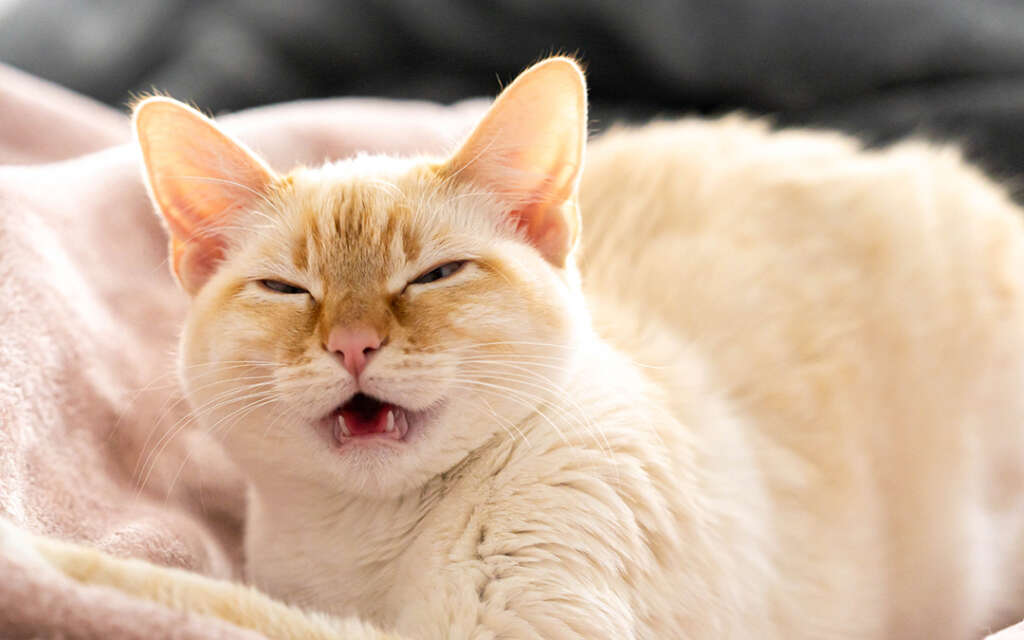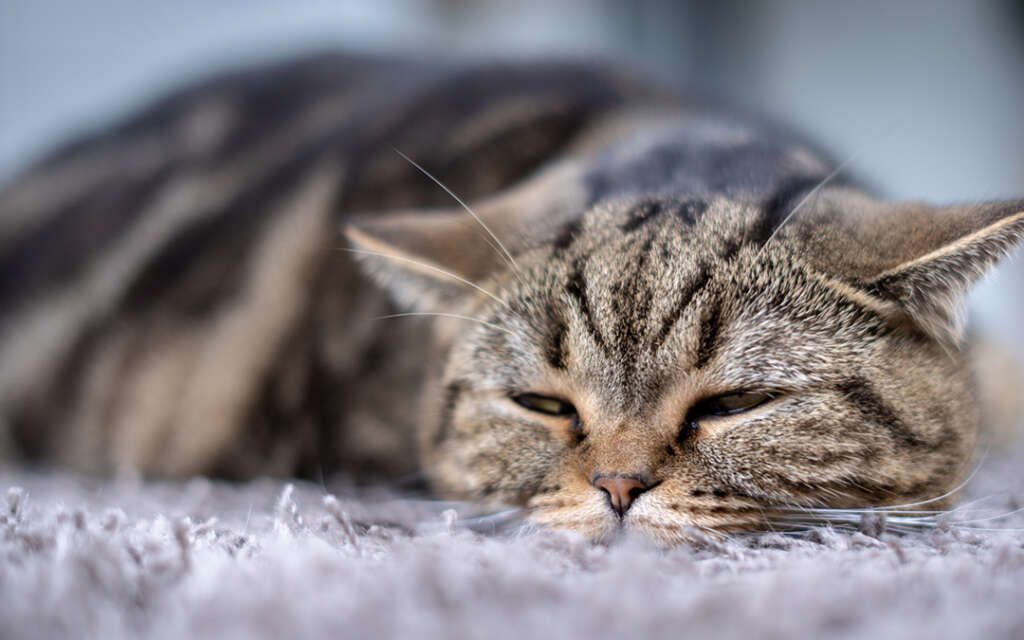Just like humans, cats can catch colds. These colds, often referred to as an upper respiratory infection (URI), are common among cats and can range from mild to severe. Recognizing the symptoms early and providing appropriate care can make a significant difference in your cat’s recovery.
Causes of Colds in Cats
Feline colds are primarily caused by viruses, with the most common culprits being the feline herpesvirus (FHV) and feline calicivirus (FCV). These viruses are highly contagious among cats and can spread rapidly, especially in environments with multiple cats, such as shelters or multi-cat households.
Cats catch colds through direct contact with infected cats, sharing food and water bowls, or exposure to contaminated surfaces. Outdoor cats are more susceptible due to their increased exposure to other cats and potential carriers of the virus.
Symptoms of Colds in Cats


Cat Cold Symptoms to Watch For:
- Sneezing
- Runny nose
- Watery eyes
- Coughing
- Nasal discharge
- Loss of appetite
- Lethargy
Mild vs. Severe Symptoms of Cat Colds
Mild symptoms often include sneezing and a runny nose. More severe symptoms can involve difficulty breathing, a high fever, and refusal to eat or drink. It’s crucial to monitor your cat closely and seek veterinary care if the symptoms worsen or persist for more than a few days.
How to Know if Your Cat Has a Cold
A veterinarian can accurately diagnose a cold virus through a physical examination and, if necessary, diagnostic tests such as blood tests or cultures of nasal discharge. These tests help determine the specific virus causing the symptoms and guide the appropriate treatment.
At home, observe your cat’s behavior and symptoms. If your cat begins coughing, has difficulty breathing, or shows other severe symptoms, seek veterinary care immediately. Early intervention can prevent complications and ensure a faster recovery.
Treatment Options for Feline Colds
While there is no cure for the viruses causing cat colds, veterinarians can prescribe medications to alleviate symptoms and prevent secondary infections. Antiviral medications may be used in severe cases to help manage the virus. (You should never give human cold medication to a cat.)
Supportive care at home is essential for a cat’s recovery. Ensure your cat stays hydrated and eats well. You can use a cloth and saline solution to clean their eyes and nose gently. Creating a warm and comfortable environment can also help your cat feel better.
Preventing Colds in Cats
Vaccination is a critical step in preventing colds in cats. Vaccines are available for both feline herpesvirus and calicivirus. Regular vaccinations, as recommended by your veterinarian, can significantly reduce the risk of your cat catching a cold.
Maintaining good hygiene, such as regularly cleaning food and water bowls and keeping your cat’s living area clean, can help prevent the spread of infections. Limiting your cat’s exposure to other cats, especially in multi-cat households or outdoor environments, can also reduce the risk.
Complications from Untreated Colds
Untreated colds can lead to secondary bacterial infections, such as pneumonia. These infections can be more severe and require more intensive treatment, including antibiotics and sometimes hospitalization.
Chronic respiratory issues can develop if a cat’s cold is not properly treated. These long-term health problems can affect your cat’s quality of life and require ongoing medical care.
Caring for a Cat with a Cold


Make sure your cat stays hydrated by providing fresh water and moist food. If your cat refuses to eat, try warming their food to make it more appealing or offering special treats to entice them.
A calm and stress-free environment is essential—both for indoor cats and outdoor cats. Ensure your cat has a quiet, warm place to rest and avoid any stressful changes or activities that could worsen their condition.
Differences Between Colds and Other Respiratory Issues
It’s important to differentiate between colds and other respiratory conditions such as feline asthma. While colds are caused by viral infections, asthma is a chronic condition that requires different management. Consult your vet if you’re unsure about your cat’s symptoms.
Persistent symptoms, such as ongoing coughing, difficulty breathing, or a significant change in behavior, may indicate a more serious condition. Always seek veterinary advice if you notice these symptoms.
While cat colds are common, they can be managed effectively with early detection and appropriate care. Ensure your feline friend stays healthy by monitoring their symptoms, maintaining good hygiene, and seeking regular veterinary check-ups. If you suspect your cat has a cold, don’t hesitate to contact Modernvet for expert advice and care.For more information on pet care and treatments, visit our pet treatments and urgent care pages. Your cat’s health and comfort are our top priorities.



